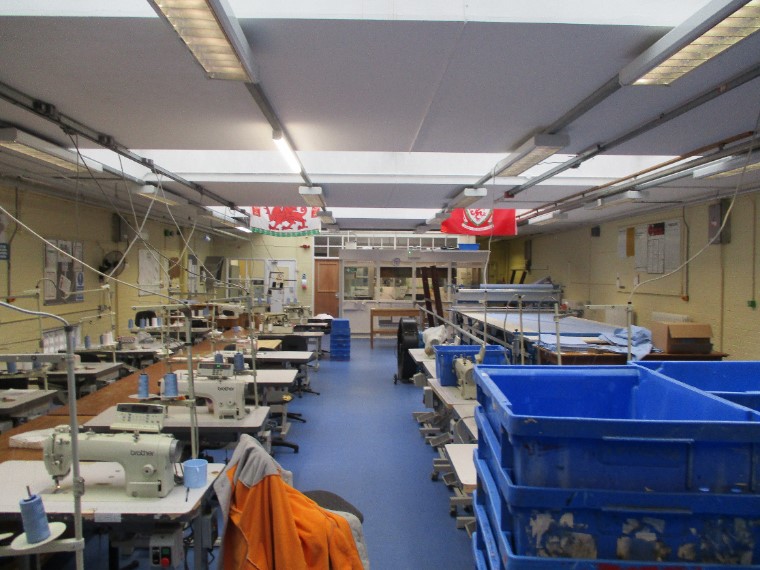World Literacy Day – the central importance of reading in prisons
On World Literacy Day, Charlie Taylor reflects on the central importance of reading in prisons and why it cannot be neglected even in times of acute pressures on the service.
These are difficult times for the prison service, with fundamental challenges such as staffing levels, ageing buildings, rising populations and overcrowding exerting unprecedented pressure. In this context, many would find it understandable if the focus of governors were on safety at the cost of other areas. But prisons have a duty to protect the public, not only by making sure that those who are sentenced by the court are kept locked up, but also by making them less likely to reoffend when they come out.
With only very few notable exceptions such as Moorland, Stocken, Preston, Swansea and the open prisons, inspectors have continued to find levels of activity at much lower levels than they were before the pandemic. Purposeful activity has, with rare exception, consistently been the lowest scoring of our four healthy prison tests and, in 2022–23, we rated 36 out of 37 men’s prisons as insufficiently good or poor in this area.



It is not just that in many jails prisoners are still locked behind their doors for hours on end, including some reception prisons where it can be as much as 22 hours a day. Even when prisoners are out of their cells, it is rare that we find they have anything like enough to do. Education is frequently cancelled because of staffing difficulties – made worse because managers don’t bother to cover lessons when their colleagues are off. Workshops remain closed and training prisons are failing to provide their core function – to give prisoners the sorts of skills and support that will help them to progress with their sentences and resettle successfully on release.
Many prisoners, as children, had a very patchy education and research suggests that more than 50% are functionally illiterate. In March 2022, HMI Prisons and Ofsted produced a joint thematic on the teaching of reading in prisons in England and Wales; the report revealed that few prisoners were given the help they needed to improve their reading and paradoxically, the worst readers got the least support.
While a number of charities provide excellent support to prisons in this area, we also found that the delivery of the reading programme led by the Shannon Trust, for example, which uses prisoner mentors to support their peers, was often heavily limited because staff did not prioritise this work or make sure that prisoners were unlocked and had a suitable space to run sessions.
A review of progress published in June 2023 found disappointingly little had changed.
As a result of our 2022 report, we were pleased that the prison service decreed that every prison should have a reading strategy. We now look at these when we inspect a prison, and find that the quality varies hugely. The best have been generated by the governor with the commitment of staff, the education provider and the third sector. In some cases, such as at our recent review of progress at the Isle of Wight, we reported very positively. In many other jails, there seems to be only a token commitment to improving reading, with the strategy written by the education provider without much input from anyone else in the prison.
We also continue to be concerned that the teaching of the most basic skills is being left to organisations like the Shannon Trust, and, although their mentors are often very committed, they are dependent on staff to enable sessions to take place. The support that the Shannon Trust and others provide is important, but they should not be expected to take on this work alone. Skilled education staff are also required to make sure that teaching reading is a core part of the offer, rather than something that is entirely outsourced to charities.
It is not just the emerging or non-readers who need help – many prisoners need to improve their reading to increase their employability on release. Reading, however, does not just have a utilitarian value to help prisoners get a decent job, understand the applications or complaints system, buy things from the prison shop and read legal documents, it is worth much more. Reading increases the imagination, builds empathy with and understanding, and provides the opportunity to escape from the current predicament into a different world. As the writer George R R Martin put it: “A reader lives a thousand lives before he dies. . . The man who never reads lives only one.” The value of reading in this sense, particularly for those serving long sentences, is surely even higher in times when prisons continue to fail to provide people with as much meaningful activity as they should.
Prisons that encourage reading also run other initiatives such as book clubs – although many have not restarted since the pandemic – author visits or Storybook Dads or Mums whereby prisoners are recorded reading a story on a CD or DVD which they can send to their family. These are usually organised by librarians, some of whom do a remarkable job. They encourage prisoners to read more widely, including moving on from the true crime or ‘get rich quick’ books that tend to be popular in men’s prisons, and the romantic fiction that tends to dominate lending in women’s prisons.
I understand the pressure that the service is under. But prisons cannot be allowed to become warehouses of men and women. They must also find ways to discharge their duty to reduce the risk that people will reoffend, and the ability to read is an absolutely fundamental part of that. It will take a concerted commitment from prison governors all the way down to officers on the wing to make reading a central part of prison life, but when it happens there will be enormous benefits to everyone who lives and works in our jails.
